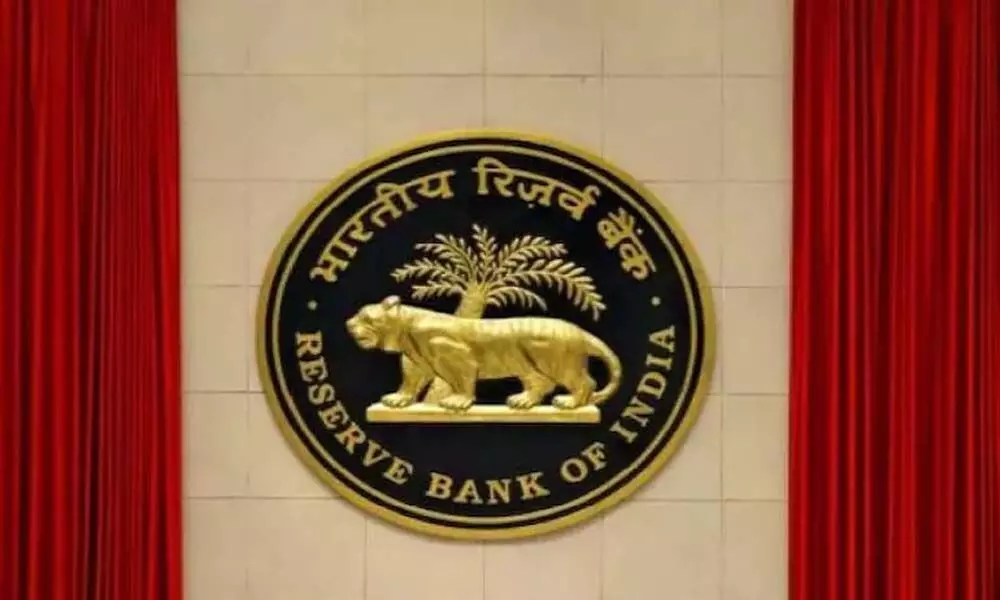RBI issues revised instructions for banks on Safe Deposit Locker

RBI issues revised instructions for banks on Safe Deposit Locker
Reserve Bank of India (RBI) on Wednesday, August 18, 2021, came out with revised guidelines for hiring lockers under which the liability of banks will be limited to 100 times its annual rent in case of fire, theft, building collapse or fraud by bank employees.
Reserve Bank of India (RBI) on Wednesday, August 18, 2021, came out with revised guidelines for hiring lockers under which the liability of banks will be limited to 100 times its annual rent in case of fire, theft, building collapse or fraud by bank employees. Revised instructions will come into effect from January 1, 2022, (except where otherwise specified) and be applicable to both new and existing safe deposit lockers and the safe custody of articles facility with the banks.
Under the revised guidelines, banks shall incorporate a clause in the locker agreement that the locker-hirer/s shall not keep anything illegal or any hazardous substance in the Safe Deposit locker. If the bank suspects the deposit of any illegal or hazardous substance by any customer in the safe deposit locker, the bank shall have the right to take appropriate action against such customer as it deems fit and proper in the circumstances.
RBI In its notification said, "Taking into consideration the various developments in the area of banking and technology, nature of consumer grievances and also the feedback received from banks and Indian Banks' Association (IBA), Reserve Bank of India ('the Reserve Bank') has reviewed the guidelines/instructions issued on the above subject. The review also takes into account, the principles enumerated by the Hon'ble Supreme Court in 'Amitabha Dasgupta vs United Bank of India', (Judgment dated February 19, 2021, in CA No. 3966 of 2010)."
RBI has said that in order to facilitate customers making informed choices, banks shall maintain a branch-wise list of vacant lockers as well as a wait-list in Core Banking System (CBS) or any other computerized system compliant with Cyber Security Framework issued by RBI, for the purpose of allotment of lockers and ensure transparency in allotment of lockers.
The banks shall acknowledge the receipt of all applications for allotment of the locker and provide a waitlist number to the customers if the lockers are not available for allotment.
In the revised guidelines, the banks shall have a Board approved agreement for safe deposit lockers and for this purpose, the banks may adopt the model locker agreement to be frame by IBA. This agreement shall be in conformity with these revised instructions and the directions of the Hon'ble Supreme Court in this regard. Banks shall ensure that any unfair terms or conditions are not incorporated in their locker agreements.
At the time of allotment of the locker to a customer, the bank shall enter into an agreement with the customer to whom the locker facility is provided, on a paper duly stamped. A copy of the locker agreement in duplicate signed by both the parties shall be furnished to the locker-hirer to know his/her rights and responsibilities. Original Agreement shall be retained with the bank's branch where the locker is situated.
Banks shall take necessary steps to ensure that the area in which the locker facility is housed is properly secured to prevent criminal break-ins. The regulator in its guidelines says that the place where the lockers are housed must be secured enough to protect against hazards of rain/flood water entering and damaging the lockers in contingent situations. The fire hazard risks of the area should also be assessed and minimized. The banks, as per their policy, shall conduct necessary engineering/safety verification regularly to identify the risks and carry out necessary rectification.
In the context of the liability of the banks arising from natural calamities, the guidelines say that the bank shall not be liable for any damage and/or loss of contents of locker arising from natural calamities or Acts of God like an earthquake, floods, lightning and thunderstorm or any act that is attributable to the sole fault or negligence of the customer. Banks shall, however, exercise appropriate care to their locker systems to protect their premises from such catastrophes.
In the case of the liability of banks arising from events like fire, theft, burglary, dacoity, robbery, building collapse or in case of fraud committed by the employees of the bank the guidelines say it is the responsibility of banks to take all steps for the safety and security of the premises in which the safe deposit vaults are housed. It has the responsibility to ensure that incidents like fire, theft/ burglary/ robbery, dacoity, building collapse do not occur in the bank's premises due to its own shortcomings, negligence and by any act of omission/commission. As banks cannot claim that they bear no liability towards their customers for loss of contents of the locker, in instances where the loss of contents of the locker are due to incidents mentioned above or attributable to fraud committed by its employee(s), the banks' liability shall be for an amount equivalent to one hundred times the prevailing annual rent of the safe deposit locker.
On locker rent, the RBI said that to ensure prompt payment of locker rent, banks are allowed to obtain a Term Deposit, at the time of allotment, which would cover three years' rent and the charges for breaking open the locker in case of such eventuality. Banks, however, should not insist on such Term Deposits from the existing locker holders or those who have a satisfactory operative account. The packaging of allotment of locker facility with the placement of term deposits beyond what is specifically permitted above will be considered as a restrictive practice.




